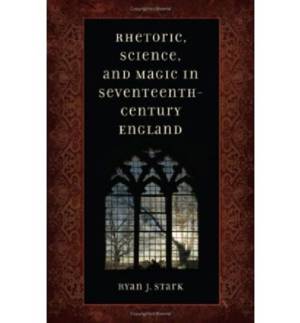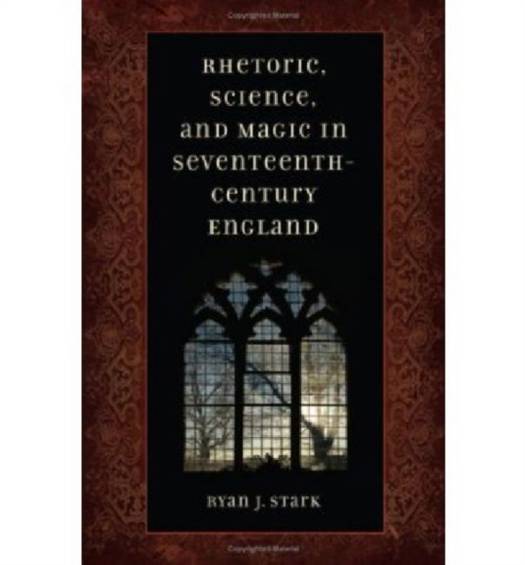
- Afhalen na 1 uur in een winkel met voorraad
- Gratis thuislevering in België vanaf € 30
- Ruim aanbod met 7 miljoen producten
- Afhalen na 1 uur in een winkel met voorraad
- Gratis thuislevering in België vanaf € 30
- Ruim aanbod met 7 miljoen producten
Omschrijving
Rhetoric operated at the crux of seventeenth-century thought, from arguments between scientists and magicians to anxieties over witchcraft and disputes about theology. Writers on all sides of these crucial topics stressed rhetorical discernment, because to the astute observer the shape of one's eloquence was perhaps the most reliable indicator of the heart's piety or, alternatively, of demonry. To understand the period's tenor, we must understand the period's rhetorical thinking, which is the focus of this book.
Ryan J. Stark presents a spiritually sensitive, interdisciplinary, and original discussion of early modern English rhetoric. He shows specifically how experimental philosophers attempted to disenchant language. While rationalists and skeptics delighted in this disenchantment, mystics, wizards, and other practitioners of mysterious arts vehemently opposed the rhetorical precepts of modern science. These writers used tropes not as plain instruments but rather as numinous devices capable of transforming reality. On the contrary, the new philosophers perceived all esoteric language as a threat to learning's advancement, causing them to disavow both nefarious forms of occult spell casting and, unfortunately, edifying forms of wonderment and incantation. This fundamental conflict between scientists and mystics over the nature of rhetoric is the most significant linguistic happening in seventeenth-century England, and, as Stark argues, it ought profoundly to inform how we discuss the rise of modern English writing.
ABOUT THE AUTHOR:
Ryan J. Stark is assistant professor of English at Pennsylvania State University.
PRAISE FOR THE BOOK:
"This extremely well-written, thoughtful book sets out to defend the new scientific writers (members of the Royal Society, inaugurated in 1662 to discuss and foster the study of the physical sciences) from the charge that 'those who attack rhetoric. . . Continued to use it'. . . .Stark is eloquent in pursuing a thesis that attacks the eloquence that makes his own book so readable, engaging, and absorbing."--John Mulryan, Cithara
"Stark investigates this mare's nest of models and influences to conclude that seventeenth-century writers deployed what he calls a 'new plain style, ' distinct from the old and devised in opposition to occultism, spell-casting, sorcery, and magical thinking."--Alvin Snider, Renaissance Quarterly
"Stark takes readers on an intriguing journey into the seventeenth-century rhetorical mind. . . . Stark's argument establishes beyond much doubt that a magical view of language dominated English prose and poetry in the decades prior to the founding of the Royal Society in 1660. . . . Ryan Stark has provided students of rhetoric a sound, well-documented and persuasive introduction to the topic of late Renaissance magic and rhetoric in England. Rhetoric, Science and Magic in Seventeenth-Century England is an important book and one that ought to change our thinking about the history of English rhetorical theory." --James A. Herrick, Rhetoric and Public Affairs
"[T]he book is a cryptonomicon that traces the crisis of enchantment in early modernity as a crisis of style, illuminating some of the most difficult riddles of language in the new millennium. I recommend it not only for students of the period, but for apprentices, and even masters, of the arts of enchantment." --Anthony Lioi, JAC
Specificaties
Betrokkenen
- Auteur(s):
- Uitgeverij:
Inhoud
- Aantal bladzijden:
- 234
- Taal:
- Engels
Eigenschappen
- Productcode (EAN):
- 9780813215785
- Verschijningsdatum:
- 30/03/2009
- Uitvoering:
- Hardcover
- Formaat:
- Genaaid
- Afmetingen:
- 147 mm x 221 mm
- Gewicht:
- 476 g

Alleen bij Standaard Boekhandel
Beoordelingen
We publiceren alleen reviews die voldoen aan de voorwaarden voor reviews. Bekijk onze voorwaarden voor reviews.








